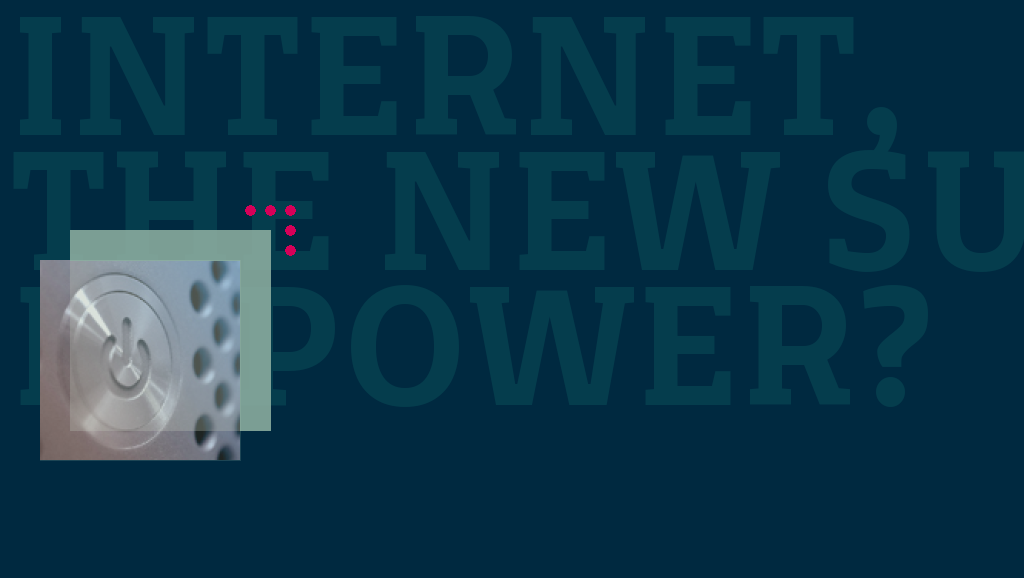This weekend saw the conclusion of the BBC World News series entitled Superpower. The series takes a look at the Internet and its effect upon people’s lives. The BBC website hosts a section dedicated to the series, featuring interviews and video clips with an impressive lineup of experts within the field.
Each weekend features a 45 minute long documentary on the BBC World News channel covering single aspects regarding Internet growth and use. The offerings are varied as the website demonstrates, and this weekend’s food for thought was entitled The Cost Of Free, conducted by Dr Aleks Krotoski. Krotoski addresses the question of how the web is funded, and comes to the conclusion that we pay for the web ourselves, by giving away our personal information and preferences that are then tracked, sold on, or traded.
She makes her argument by offering a short history of Google, originally a search engine but now a global organization with its fingers in many pies. The problem from the start for Google was how to make money.
During the program Larry Page one of Google’s co-founders describes how the Google search engine has a built in capacity to remember all of the previous search terms from an individual IP address. This information allows different points of reference enabling the search to become ever more specific. For example I often search the terms responsibility and innovation, so whenever I do a search (for a new car for example) Google can bear in mind my interest in innovation and offer me hits about new forms of propulsion or automotive construction materials. These might not appear on an identical search conducted on another computer with a different search history.
All of this information has a value, because it allows direct and extremely targeted advertising. Google offers advertising slots on its search page. Somebody enters their search terms and these terms determine the adverts that pop up through their AdWords program. If that person clicks on one of the adverts the company pays Google directly.
A similar idea is also lauded by Amazon, although here we are dealing with a recommendation system. Cookies track search patterns letting them know what the user is interested in so that they can offer them relevant materials. They compare the use of this information system to setting up the shop each time a new customer enters, with things that interest them on the first shelves they see and subject matter they are less inclined towards further on down the line.
In an interview conducted by the BBC, Google CEO Eric Schmidt claims that the vast majority of people agree to Google keeping all of this information, and that only about 10 percent of the population were ‘violently opposed to’ the process, but that the company tries its best to keep everybody happy. He states that Google does inform its users about all of the information collected.
Some, such as Shami Chakrabarti, Director of the UK pressure group Liberty do not agree. She claims that companies do not have a plan of action for all of this information collected, but that in the wrong hands this information could be dangerous.
Harvard sociologist Danah Boyd agrees. She cites the example of information collected by the Dutch government about people’s religious beliefs in the 1930’s, information that was aimed at giving people the correct form of funeral but once in the hands of the German occupiers in itself became a death sentence.
But how easy would it be to pinpoint an individual user given this stored information about their particular search terms? David Gallagher is a New York Times journalist and after AOL released data collected about 20 million searches he decided to try to find out who the person categorized as AOL Searcher No. 4417749 actually was. In an article published in 2006 he explains how easy it was to identify the user through their search terms, the process he followed, and how that individual user felt when he called her to see if he had identified her correctly. The user, Thelma Arnold, a 62-year-old widow, was obviously not happy and describes the experience as like seeing her personal life published to the world. The article goes on to raise some questions about the legal and ethical implications of the collection of such data and asks if the police should be able to use searches that may imply such things as child pornography or drug manufacturing in their investigations.
The BBC documentary cited above, alongside many interesting downloadable articles in the Superpower section of the BBC website raise several interesting arguments and issues including that of privacy, censorship, on-line politics and copyright practices.
The Digital Giants section also contains a nice collection of 4 minute interviews with leaders in various related sectors and is well worth a look.
(photo: power – by atomicshark from Flickr)
















